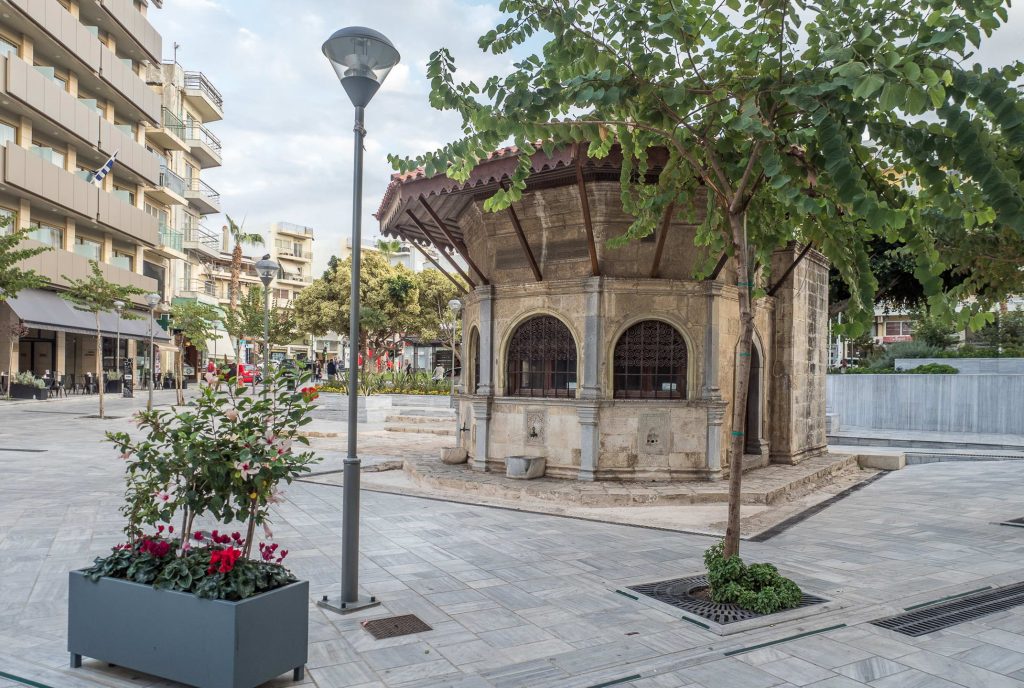Τhe sebil was built in 1776 by Haci Ibrahim Aga, who spent almost all of his fortune on maintaining it. It is the only surviving example of a sebil in the city.
This particular one takes the form of a round domed building punctuated by semicircular barred windows, in front of which is a fountain with a stone basin, where the water once gathered.
The fountain came close to being demolished together with the San Salvatore Church, under proposals supported by many townsfolk and the local press. It is now used as a coffee house, continuing a tradition established in Ottoman times.
Sometime after it was built, an Ottoman inscription that still survives was placed in the wall above the arched door to the west. The text is a highly interesting aphorism with roots in Aristotle and Thales of Miletus, stating that “water is the life of all”.
In the Ottoman period, the Valide Sultana Mosque towered over what is known Cornarou Square, and the philanthropic sebil was an important meeting place for Muslims, as there were several coffee houses serving water pipes. This was also the place where Ramadan and the three-day Bayram (Eid ul-Fitr) were celebrated.



